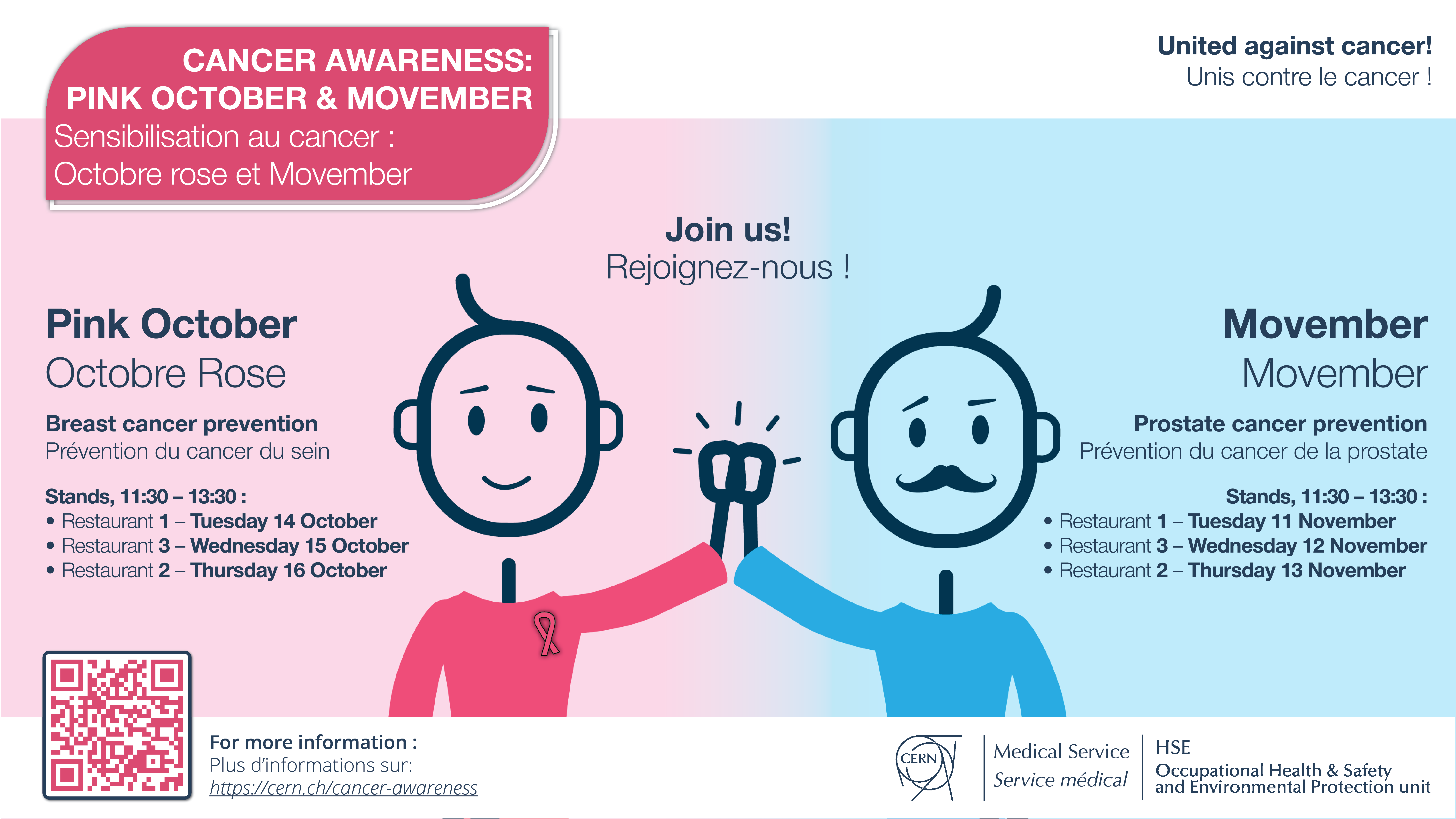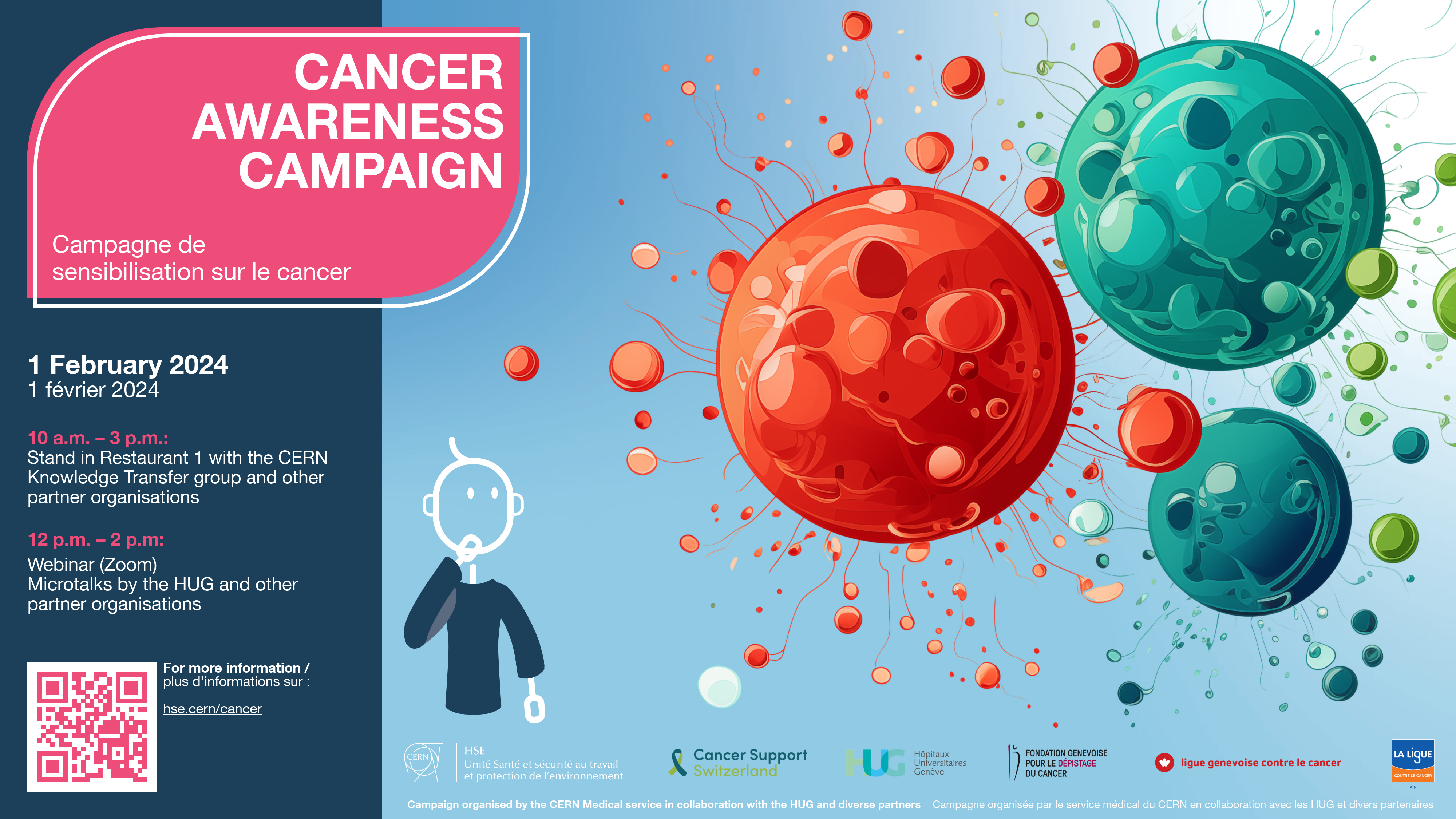Cancer awareness and prevention
4 February marks World Cancer Day, an initiative started in 2000 and led by the Union for International Cancer Control, UICC.
Contents
Background | Prevention | Support | Zoom-in on breast and prostate cancer
Campaign | Further reading & resources
Background
Cancer is a global health challenge that affects millions of people. It is a complex group of diseases characterized by the growth and spread of abnormal cells in the body. The World Cancer Research Fund (WCRF) estimates there were as many as 18.1mn cases worldwide in 2020, with near equal impact on men and women. The most common types of cancer include breast, lung, gastrointestinal and prostate cancers—though there are many more—and the World Health Organization (WHO) estimates that one in five people develop cancer in their lifetime and approximately 1 in 9 men and 1 in 12 women die from the disease (WHO 2022). While the prevalence of cancer can vary by region, type of cancer, and demographic factors, it is unequivocal that cancer is a leading cause of morbidity and mortality.
There is hope however: WHO suggests that up to 50% of cancers can be prevented, either by lifestyle changes or simple proactive medical interventions. By making informed choices, starting with adopting an active lifestyle with a varied, healthy diet, individuals can reduce their cancer risk and contribute to the global effort to combat the disease.
Prevention
There's a lot you can do to reduce your risk of cancer – starting with living a healthy, active lifestyle: making healthy choices and taking small but important steps is the best way to stay on the path of good health, no matter what age you are.
Every little helps:
- Eat well.
- Move more, sit less.
- Limit your alcohol consumption.
- Avoid tobacco.
- Be 'sun safe' and limit exposure to the sun, whatever the season.
- Ensure you carry out appropriate screenings and get vaccinated against HPV - Human Papillomavirus and hepatitis B).
- Get checked regularly by your General practitioner.
Take this interactive test (in French) “Reduce your risks of cancer: take the test! (3 minutes)
If in doubt, check it out!
Support
if you have cancer or are supporting a family member, friend or colleague affected by cancer, don't go through it alone. Help is at hand.
- Cancer Support Switzerland
- La ligue genevoise contre le cancer
- La ligue française contre le cancer
- OTIUM center, Meyrin
The CERN Medical Service, infirmary and psychologists can also guide you on finding the best support depending on your circumstances and needs.
Zoom-in on Breast cancer & Prostate cancer

Breast Cancer:In a nutshell: The WCRF states that globally, breast cancer is the most common cancer in women and, in 2022, the second most common cancer overall with over 2.29 million cases. One in eight women will be affected during their lifetime. Detected early, breast cancer can be cured in 9 cases out of 10. Self-checks and organised screening programmes (mammograms) are essential from the age of 25. The risk of developing breast cancer can be reduced by taking regular physical exercise, eating healthily and moderating alcohol and tobacco intake. Every year, October marks Breast cancer awareness month also known as Pink October. Check you risk with this quiz! Find our more : Breast cancer (WHO) – Pink October |
Prostate Cancer:In a nutshell: According to the WCRF, there were 1,467,854 new cases of prostate cancer in 2022 and it is the 4th most prevalent form of cancer in the world (2022). It is the most frequently diagnosed cancer in men while testicular cancer is more rare and affects mainly younger men (15-40 years old). An early diagnosis markedly increases chances of recovery and survival. Awareness and regular check-ups are key. The following main symptoms should be monitored : pain, discomfort, testicular changes, urinary problems. Every year, November marks prostate cancer awareness month with a campaign also known as ‘Movember’. Check you risk with this 30 second quiz! Find out more on these links: Prostate cancer | Cancer Research UK - Movember | Prostate Cancer UK |
Cancer awareness: campaign on 1 February 2024
A dedicated webinar was held featuring microtalks by Hôpitaux Universitaires de Genève (HUG), La ligue genevoise contre le cancer, La ligue française contre le cancer, Fondation Genevoise de Dépistage du Cancer,;Cancer Support Switzerland and the CERN psychologists. Talks were given mainly in English, with some in French.
Subjects span epidemiology, risk factors, treatment and prevention measures, and advice on how to manage the disease both for cancer patients and for those supporting them. The CERN psychologists also talk about the mind-body connection and how to optimize recovery.
Watch the webinar recording here.
The CERN Medical Service also hosted an information stand with several partner organisations, as well as the Knowledge Transfer.

